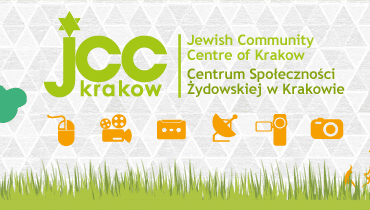Contents
Key Facts
- Multi-talented cultural figure: Printer, bookseller, publisher, and cantor in a progressive synagogue
- Pioneer of Jewish theater: One of the key initiators of the Jewish Theater in Krakow
- Hebrew printing house owner: Operated at 62 Grodzka Street, later inherited by his son Maurycy
- Publisher of renowned works: Including Ahad Ha'am's monthly "Ha-Shiloah" and Polish Bible translations by Izaak Cylkow
- Literary hub: Attracted famous Jewish writers like Sholem Aleichem and Sholem Asch
- Academic publisher: Published works by distinguished scholars including Dr. Joseph Klausner
Early Life and Background
Fiszer Józef (anglicized as Joseph Fiszer) emerged as one of the most influential figures in Krakow's Jewish intellectual and cultural scene during the late 19th and early 20th centuries. Operating during the period of Austrian rule in Galicia (1867-1918), his multifaceted career encompassed various aspects of Jewish cultural life, from religious service to literary publishing, making him a central figure in the preservation and promotion of Jewish heritage in Krakow within the broader Małopolska region.
During this era, Krakow served as a major center of Jewish learning and culture within the Austro-Hungarian Empire, benefiting from relatively liberal policies that allowed Jewish cultural and economic development to flourish.
Professional Career
Publishing and Printing Enterprise
Fiszer established his Hebrew printing house at 62 Grodzka Street in the late 19th century, a location that would become synonymous with Jewish intellectual life in Krakow. This strategic location in the heart of the city's Old Town district, near the Main Market Square and within walking distance of the Jewish Quarter (Kazimierz), provided easy access for scholars, writers, and the Jewish community seeking quality Hebrew and Yiddish publications.
The printing house specialized in:
- Religious texts and commentaries including prayer books, Talmudic works, and rabbinical literature
- Literary works by contemporary Jewish authors writing in Hebrew, Yiddish, and Polish
- Academic and philosophical publications focusing on Jewish studies and modern Hebrew literature
- Periodicals and magazines that served the intellectual needs of Eastern European Jewry
His establishment was renowned for its high-quality printing standards and attention to detail, particularly important when dealing with Hebrew typography and complex religious texts that required precision in both language and ritual accuracy. The printing house employed skilled typesetters familiar with Hebrew script and Jewish textual traditions, contributing to Krakow's broader publishing history.
Notable Publications and Editorial Work
Ahad Ha'am's "Ha-Shiloah"
One of Fiszer's most significant contributions to Jewish intellectual life was his role in publishing and distributing the influential monthly periodical "Ha-Shiloah" founded by the renowned Jewish philosopher Ahad Ha'am (Asher Ginsberg, 1856-1927). First published in Odessa beginning in 1896, Ha-Shiloah became the leading Hebrew literary and cultural magazine of its time.
Fiszer's printing house likely served as the distribution center for the Austrian territories and possibly handled reprinting of certain editions. This publication was instrumental in promoting modern Hebrew literature, Jewish cultural nationalism, and what would later become core Zionist ideology throughout Eastern Europe, making Fiszer's establishment a center for disseminating modern Jewish thought.
Bible Translations by Izaak Cylkow
Fiszer's printing house produced several volumes of the Bible translated from Hebrew into Polish by the distinguished scholar Izaak Cylkow (1841-1908). Cylkow's translation work, completed between 1883-1899, represented a monumental scholarly achievement and was the first complete Polish translation of the Hebrew Bible by a Jewish scholar.
These translations were groundbreaking in several ways:
- Made Jewish religious texts directly accessible to Polish-speaking Jews
- Provided an alternative to Christian translations of the Hebrew Bible
- Contributed significantly to Jewish-Polish cultural dialogue and scholarship
- Demonstrated the compatibility of Jewish learning with modern European scholarship
Academic and Scholarly Works
The printing house served as a publishing platform for numerous outstanding scholars and writers, including works that would later be housed in institutions like the Princes Czartoryski Library. Notable scholars included:
- Dr. Joseph Klausner (1874-1958) – renowned historian, literary critic, and professor at Hebrew University, who wrote extensively on Hebrew literature and Jewish history
- Various other academics who contributed to the revival of Hebrew literature and Jewish historical scholarship, many with connections to Jagiellonian University
Literary Connections and Cultural Network
Fiszer's establishment became a gathering place and publishing center for prominent Jewish writers from across Europe. The printing house attracted and likely published works by:
- Sholem Aleichem (Solomon Rabinovich, 1859-1916) – often called the "Jewish Mark Twain," famous for his Tevye stories that later inspired "Fiddler on the Roof." His visits to Krakow would have connected him with publishers like Fiszer who specialized in Jewish literature
- Sholem Asch (1880-1957) – Nobel Prize-nominated novelist known for his works bridging Jewish and Christian themes, who wrote in Yiddish and whose works were translated into multiple languages
These literary figures found in Fiszer not only a skilled printer and publisher but also a cultural patron and facilitator who understood the importance of preserving and promoting Yiddish and Hebrew literature during a period of rapid cultural change in Eastern Europe. Many of these famous Polish figures contributed to the rich cultural tapestry of the city.
Religious and Community Leadership
Progressive Synagogue Role
Beyond his publishing endeavors, Fiszer served as a cantor (hazzan) in a progressive synagogue in Krakow, contributing to the development of synagogues in Krakow. His role demonstrated deep commitment to Jewish religious life and liturgical tradition. His position as cantor required extensive knowledge of:
- Traditional Jewish liturgy and prayer melodies
- Hebrew language and pronunciation
- Jewish religious calendar and seasonal variations in worship
- Musical traditions spanning different Jewish communities
This position also placed him at the center of religious modernization movements within Krakow's Jewish community. Progressive synagogues during this period often embraced reforms such as:
- Use of local vernacular languages alongside Hebrew
- Modified liturgical practices
- Emphasis on decorum and aesthetic enhancement of worship
- Integration of contemporary Jewish thought with traditional practice
Jewish Theater Development
Fiszer was instrumental in organizing the Jewish Theater in Krakow, recognizing the importance of dramatic arts in preserving and transmitting Jewish culture to broader audiences. This initiative was part of a larger movement across Eastern Europe to establish professional Jewish theatrical traditions that could compete with mainstream European theater while maintaining distinctly Jewish themes, languages, and cultural perspectives, alongside other entertainment venues.
The Jewish Theater movement in Krakow served multiple cultural functions:
- Cultural preservation through dramatic interpretation of Jewish folklore, history, and literature
- Community building by providing shared cultural experiences for diverse Jewish audiences
- Educational outreach to both Jewish and non-Jewish audiences about Jewish life and values
- Artistic expression primarily in Yiddish, making theater accessible to the Jewish masses
- Economic opportunity for Jewish actors, playwrights, and theater professionals
Family Business Continuation
Maurycy Fiszer's Adaptation and Evolution
The family enterprise continued under Fiszer's son Maurycy, who inherited the printing house and adapted it to changing market conditions by transforming it into a general commercial printing establishment. This evolution reflected several important historical developments:
- Changing demographics of Krakow's Jewish community
- Increased demand for commercial printing services
- Economic pressures requiring diversification beyond specialized Jewish publishing
- Integration of Jewish businesses into the broader Krakow commercial landscape
While maintaining some focus on Jewish publications, Maurycy Fiszer's adaptation ensured the business's survival through the challenging interwar period, demonstrating the family's entrepreneurial flexibility and business acumen.
Impact on Krakow's Publishing Landscape
Creation of a Publishing District
Fiszer's success and the reputation of his Grodzka Street operation contributed to the development of a concentrated publishing and printing district in central Krakow. His pioneering work attracted other publishers and printers to establish operations in the vicinity, creating a publishing cluster that served multiple communities and markets.
This concentration of publishing activity contributed to:
- Knowledge transfer and technical innovation among printing establishments
- Development of specialized suppliers and services for the publishing industry
- Creation of a literary and intellectual hub in the city center
- Enhanced reputation of Krakow as a regional publishing center
Contribution to Jewish Publishing Networks
Fiszer's work helped establish Krakow as a significant node in the international network of Jewish publishing and intellectual exchange. His connections with writers, scholars, and publications from across Europe positioned the city as a bridge between different Jewish communities and intellectual traditions, fostering the kind of International Cultural Center atmosphere that continues today.
Historical Context and Cultural Significance
Bridge Between Tradition and Modernity
Operating during a period of rapid social and cultural transformation, Fiszer's work served as a crucial mediator between traditional Jewish scholarship and emerging modern Jewish movements. His publishing program balanced:
- Classical Jewish religious texts with contemporary Jewish literature
- Hebrew language revival with practical community needs
- Local Krakow Jewish community interests with broader European Jewish intellectual currents
- Traditional Jewish learning with modern European scholarly methods
Documentation and Preservation
Through his meticulous printing and editorial work, Fiszer contributed significantly to preserving Jewish intellectual and cultural heritage during a period of unprecedented change in Eastern European Jewish life. His publications served as:
- Repositories of traditional Jewish knowledge and practice, now preserved in institutions like the Galicia Jewish Museum
- Platforms for contemporary Jewish intellectual development
- Bridges between different Jewish linguistic and cultural communities
- Historical records of Jewish thought and literature from this crucial period, documented alongside other cultural artifacts in the Historical Museum of Krakow
International Cultural Exchange
The scope and quality of Fiszer's publications established Krakow as an important center in the global network of Jewish cultural and intellectual life. His work connected local Jewish communities with:
- Major centers of Jewish learning in Eastern Europe
- Emerging Hebrew literary renaissance
- Modern Jewish political and cultural movements
- International Jewish scholarly and publishing networks
This cultural legacy is celebrated today through various cultural festivals, including the renowned Jewish cultural festivals that continue to honor this rich heritage.
Legacy and Historical Assessment
Fiszer Józef's multifaceted contributions to Jewish cultural life in Krakow represent the remarkable intellectual and cultural vitality of Polish Jewry during the late Austrian period and early Polish independence. His integrated approach—combining religious service, cultural organization, and scholarly publishing—exemplified the dynamic synthesis of tradition and innovation that characterized Jewish life in Krakow before World War II.
The printing house at 62 Grodzka Street stands as a symbol of Jewish intellectual achievement and cultural contribution to the broader fabric of Krakow's urban life, situated in the shadow of Wawel Castle and contributing to the city's cultural richness that continues to be celebrated in venues like the art galleries and the National Museum. Fiszer's vision of Jewish culture as simultaneously rooted in tradition and engaged with contemporary developments helped create institutions and publications that enriched both Jewish and Polish cultural life during a pivotal period in Central European history.
His work provides valuable insight into how Jewish cultural entrepreneurs navigated the opportunities and challenges of life in the Austrian Empire, contributing to both Jewish cultural renaissance and the broader intellectual life of Krakow as a major Central European city. The vibrant Jewish community he helped nurture continues today through institutions like the Jewish Community Centre, and his legacy of religious tolerance resonates with the city's later embrace of figures like John Paul II.

